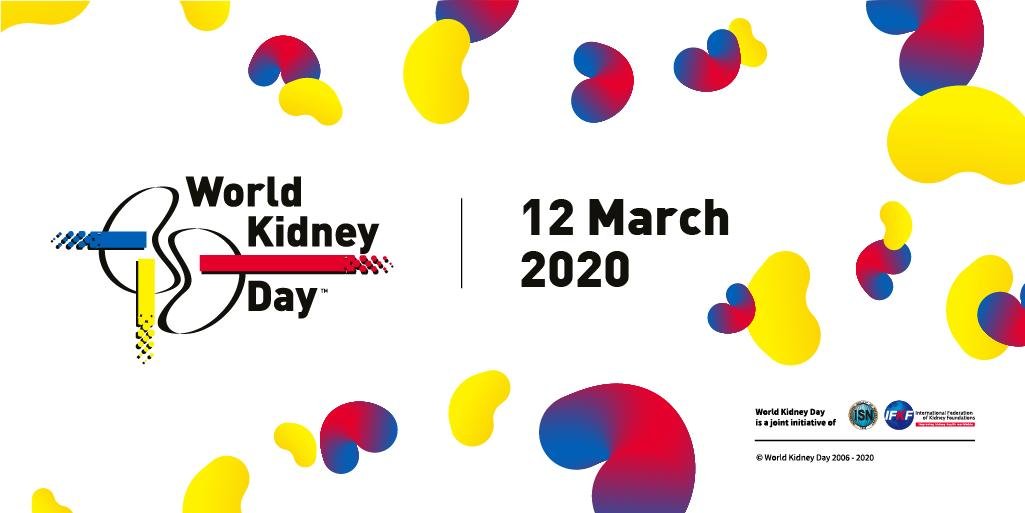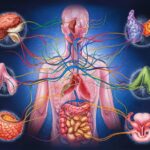If every part of the body does its job properly, then the man looks healthy and energized. However, if there is discomfort in any part of the body, the whole body looks and all the attention is drawn to it. Allah has assigned some function to all the organs of the body, but we are negligent in our daily routine, not realizing their importance. Which can cost us at any age (especially after 30 years)? Some organs of the body perform important functions, including the kidney.
World Kidney Day
World Kidney Day is celebrated worldwide on the second Thursday in the month of March every year around the world to highlight the health and importance of kidneys and to inform people about the diseases they cause. The celebration of this day was started in 2006. Various seminars and events are being organized in different countries around the world to accomplish it. At these events, experts provide information on kidney diseases and their safety. Today on world kidney day, we also take a look at their functions, health, and diseases.
1: Importance and Functions
On the right and left side of the spinal cord, the lower half of the waist is called the kidney. A healthy young male has a kidney length of 11 cm while a healthy female kidney has a length of 10 cm. The main function of the kidneys is to cleanse the blood in the human body. The kidney transports 1500 liters of blood a day for 24 hours. The fine blood vessels and neural cups in the kidneys re-add blood to the human body after filtering the blood. During filtration, excess salt and water in the blood are released from the human body in the form of urine. If the performance of anyone’s kidney is affected, there are risks to human life.
2: Diseases and Causes
About 85 million people are currently suffering from various kidney diseases worldwide. While one in every 10 people have chronic kidney disease. It is said that by 2040, it will be the fifth leading fatal disease worldwide. In developing countries, dialysis and kidney transplantation cost 2 to 3% of the annual health budget.
More than 70 million people are suffering from kidney diseases in Pakistan. Chronic kidney disease and kidney stones are notable. There are several causes of kidney failure. These include type 1 and type 2 diabetes, hypertension, cardiovascular and cardiovascular diseases, hereditary kidney disease, and obesity.
3: Kidney protection
Your slightest carelessness can lead you to kidney disease. However, if a person has kidney disease, timely diagnosis and early treatment can cure the disease. Kidney disease prevention is divided into three parts:
- Primary Prevention: Treating kidney disease before it begins.
- Secondary Prevention: Taking precautions, which makes early diagnosis and early treatment of kidney disease possible and prevents the disease from escalating.
- Tertiary Prevention: Controlling the kidney disease from escalating and leading to more serious complications.
When it comes to early prevention, it is important that you keep yourself fit and active, which is why exercise is so important. In addition, keeping blood pressure balanced can reduce the risk of kidney diseases. Also, keep the blood sugar level under control.
Diabetes causes half of kidney diseases. To keep your kidneys healthy, reduce salt intake in your daily diet, such as eating 5 to 6 grams of salt a day. Instead of eating outside foods, especially junk foods, make homemade foods a priority. Because weight gain can also cause kidney failure. Quit smoking and be sure to drink as much water as possible.
Read Also: 5 Primary Symptoms of Protein Deficiency
Experts consider an adult to drink 2 to 4 liters of water daily. This helps exclude stone-forming minerals (most of which contain calcium oxalate) from urine. Due to the low water, these minerals form stones in the kidney.
Foods such as leafy vegetables, cranberries, turmeric, garlic, ginger, lemons, olive oil, beans, basil, celery, apples, grapes, and pomegranates are useful in kidney diseases. All of these things can be prevented by kidney disease, but experts say that you should always take tests like blood sugar, blood pressure, urine DR and ultrasound and consult a physician.







